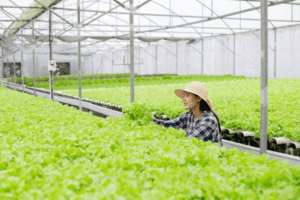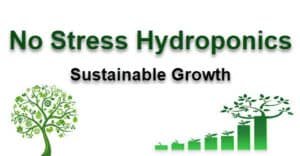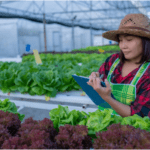When it comes to farming, there are two main types: hydroponic and traditional. Both have their own unique benefits and drawbacks. In this blog post, we will compare and contrast hydroponic Vs traditional farming methods to help you decide which is best for you!
For many people, the answer is yes. In comparison to traditional farming techniques, hydroponics are less expensive and generate greater yields. The main drawback of hydroponics is that they need a lot of electricity to operate effectively, but it pays off in the long run since hydroponic farms are typically capable of producing ten times as much as a typical farm! But let’s take a closer look at the costs and other factors that might assist you in making an informed decision.
Hydroponic Vs Traditional Farming, Which one is More Cost-Effective?
The answer is somewhat subjective. If you’re comparing the cost per square foot, hydroponics usually costs less than conventional farming since it takes up less room for production. Plants require soil for growth, but hydroponics may be used to produce a substitute for water and eliminate it.
When we analyze the price per pound of production, intensive farming is typically a more cost-effective option. This occurs because conventional methods may generate higher yields, and there are no additional expenses associated with labor or equipment maintenance. But don’t rule out hydroponics yet! If you just want to grow one thing in particular in large quantities, hydroponics may be less expensive. Traditional methods may need greater financial resources than hydroponics to produce the same amount of tomatoes or peppers for canning.
Hydroponic Vs Traditional Farming, Which one is Preferable?
Many people believe that hydroponics is superior to traditional agriculture because it requires less water and is simpler to manage. However, you can grow much more food in traditional farming than in hydroponics. Many people are under the impression that nutrients utilized in plant cultivation aren’t healthy or safe, either because they use excessive chemicals or because they are processed. It’s true that some fertilizers contain hazardous materials, but they’re not required to grow crops.
It is true that hydroponic farming takes longer than traditional agriculture since you must feed and monitor the system every day if it is automated, but many people feel that this extra work guarantees your food to be healthier and safer to eat.
What is the Cost of Operating an Indoor Hydroponic Farm?
On average, setting up and running a hydroponic farm will cost you about $3,000. However, this figure can vary depending on the size of your hydroponic farm and the setup that you prefer. For example, you may buy ready-made hydroponic systems or construct your own.
An easy DIY hydroponic system is most likely for you if you’re up to speed with gardening and wish to set up a modest farm on the cheap. You’ll need some basic supplies, such as PVC piping, tubing, nutrients, trays net pots, and grow lights.
Is There a Profit to Be Made in Hydroponic Farming?
Yes, there is. However, this does not mean that everyone should begin their own hydroponic farm right immediately. Before making a decision on how you want your business to operate or what type of farming method you want to use in order for it to be successful, it’s critical to consider the benefits and drawbacks of both approaches.
The most essential problem when it comes to hydroponic farming is whether or not you have enough money to get your business started. This implies you’ll need to purchase all of your equipment and construction materials as well as finance charges such as insurance and upkeep.
Although this technique does save money because you don’t need to use soil, you’ll require a larger area for your plants to thrive since hydroponics needs more growing space. There is no initial investment in traditional farming; additionally, it doesn’t necessitate any extra expenditures such as maintenance or insurance after the farm has been established.
Is Hydroponically Grown Food a Healthier Alternative?

The long answer is that hydroponically grown food is potentially healthier than conventionally farmed produce because there are fewer pests and illnesses, which means pesticides aren’t required to keep the plants free of insects or diseases.
Another advantage of indoor farming is more control over water and nutrient levels. When done effectively, this can also yield a higher-quality crop than conventional agriculture techniques allow. All things considered, the technology to do these things requires money and runs on electricity, so your upfront investment will be considerably higher than purchasing veggies at the supermarket or at a farmers’ market.
The True End of the Story Between Hydroponics and Traditional Farming
If you’re a professional or even a hobby farmer who wants to learn more about hydroponics and modern gardening techniques, there are only a few things to think about:
- Cost: Traditional farming is a constant cost, while large hydroponic farms are a significant investment. They both need a considerable amount of money. As a result, you’ll have to be cash flow positive at all times.
- Time: Hydroponics allows plants to grow more quickly, which is a significant advantage. However, they need more attention to detail when it comes to nutrient solution monitoring.
- Space: Are you able to grow your plants in the amount of space or land that you have? If you want to produce enough crops to sell, both need a large area. Nowadays, indoor vertical farms are gaining in popularity.
- Location: Depending on where you live, seasons and weather may have a significant impact on your farming. You can take that indoors and outside with hydroponics.



